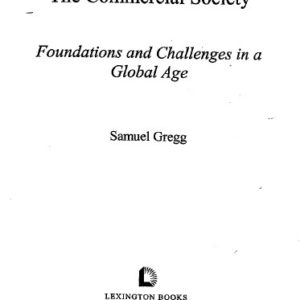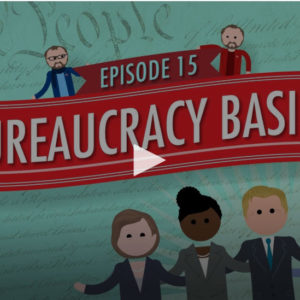Lesson 3 Lesson 3: Bureaucracy and the Commercial Order
Presented by: Dr. Jay Richards
Busch School of Business and Economics at the Catholic University of America
The Growth of both Commerce and Bureaucracy
This lesson considers two developments in the modern era. The earlier development is the growth of commerce as a way or organizing social relations. The second and more recent development is the growth of bureaucracy in government and in business. Understanding and reconciling the two is a central concern of modern political economy.
Key Concepts: (1) Feudalism, (2) Commercial Society, (3) Bourgeois Virtues, (4) Protestant Work Ethic, (5) Self-interest Rightly Understood, (6) Bureaucracy

Learn More
 PDF
PDF
Samuel Gregg, “Toward Commercial Order,” and “Neither Angel nor Beast,” The Commercial Society, Chapters 1-2 pp. 1-24; 27-49.
Read Now Link
Link
James Q. Wilson, “The Rise of the Bureaucratic State,” National Affairs, Fall 1975, pp. 77-103.
Read Now Video
Video
“Understanding Human Nature: How Best to Maintain Our Political and Social Institutions,” with James Q. Wilson
Watch Now




